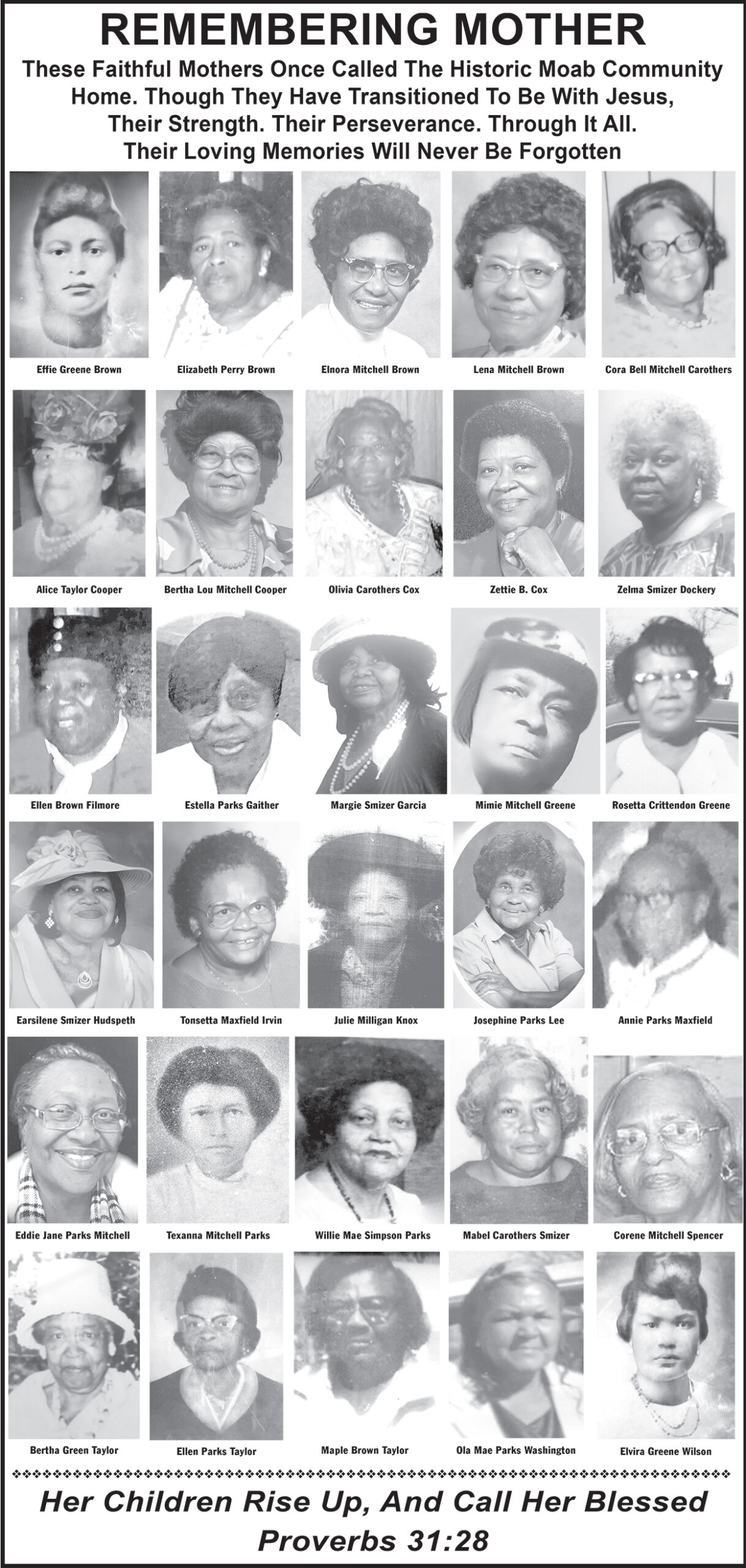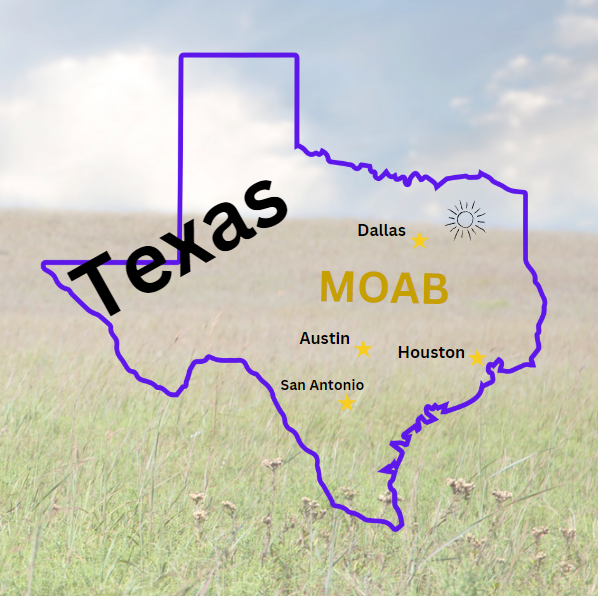2023 Mother’s Day Tribute

Pledge of Allegiance . . . . . . . . . . . . . .
Opening Prayer . . . . . . . . . . . . . . . . . .
Music . . . . . . . . . . . . . . . . . . . . . . . . . .
Rev. Robert E. Goins
Opening Remarks . . . . . . . . . . . . . . . .
Mrs. Verdetta Joiner
Chair, Lee County Historical Commission
The Honorable Paul E. Fischer
Lee County Judge
Opening Remarks . . . . . . . . . . . . . . . .
Mrs. Verdetta Joiner
Chair, Lee County Historical Commission
The Honorable Paul E. Fischer
Lee County Judge
Presentation . . . . . . . . . . . . . . . . . . . .
Music . . . . . . . . . . . . . . . . . . . . . . . . . .
Mr. Alonzo Wood, District Director
Reflections Of Living In Moab.......
Other Reflections . . . . . . . . . . . . . . . . . .
Music . . . . . . . . . . . . . . . . . . . . . . . . . .
Mrs. Margie Smizer Garcia
(2 Minutes Please)
Guest Speaker . . . . . . . . . . . . . . . . . . .
Special Remarks . . . . . . . . . . . . . . . . .
Mrs. Alberta Phillips
Mrs. Allene Parks Jones
Mr. Robert Greene
Closing Prayer . . . . . . . . . . . . . . . . .
Program Coordinator . . . . . . . . . .
Rev. Charles Bradford
Seth Dockery III
Texas Historical Marker
Moab Community
Situated about ten miles southwest of Lexington, The community of Moab was a predominately African American community. There are indications that the area was well populated before the Civil War but became more so following emancipation. Many “Freedom Colonies” formed in lee County after the Civil War and began new black landowner communities.
Moab was mostly a community of farmers who were dependent upon income from crops. To supplement their income, families would go on “cotton picks” and follow cotton harvesting throughout Texas and parts of New Mexico. For food, families harvested peanuts, corn and other vegetables and raised hogs, cattle, chickens and turkeys.


A Community School Opened Around 1900
A community school opened around 1900 and by the
1930s, the settlement had the school, two churches,
A cemetery, post office and a number of scattered
dwellings. According to a 1935 Board of Education
Survey, Moab’s school employed two teachers with
Forty-eight students enrolled in grades one to ten.
The school burned in the late 1930s but was rebuilt One
Year later. During the interim, the school was housed
In the Methodist Church. Two churches existed in the
Moab community. Little Zion Baptist Church was led by
Rev. Person from the 1930s to the 1960s and the church
had over 50 members at its peak.
The Baptist Church burned in the 1960s and was not rebuilt. Mt. Nebo African Methodist Episcopal Church is the only church that remains in the community. Each year, special programs bring descendants back into the community. This once thriving community represents a triumph in kinship and perseverance, and the beginnings of a people after slavery.
